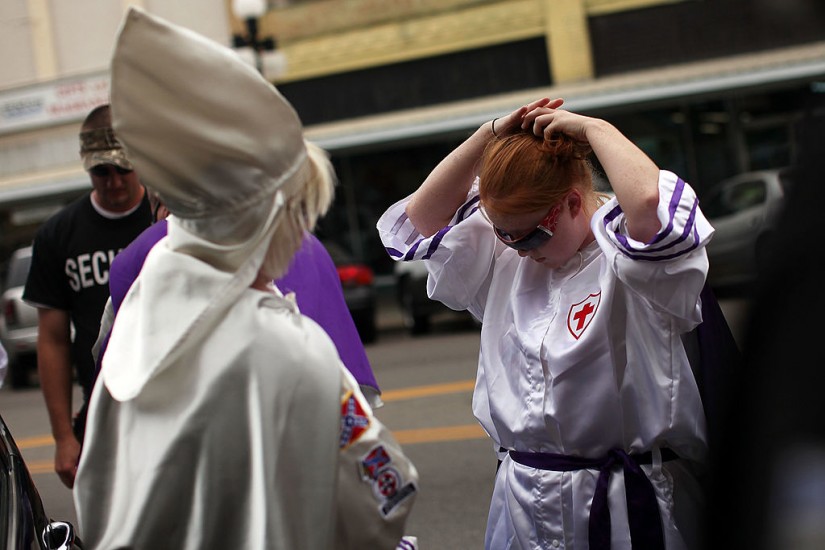The “Unite the Right” Rally last month in Charlottesville, Va., continues to dominate headlines, with President Trump reigniting controversy last week by reiterating his belief that both sides are to blame for the violent fallout between protesters and counter-protesters. “You have some pretty bad dudes on the other side also,” the President said.
The president’s choice of words — the idea that there are “bad dudes” out there — is significant, as it sheds light on an aspect of the controversy that has largely been ignored, which is the role of women in the white nationalist movement. The images that have dominated the Charlottesville narrative in its aftermath have likewise tended to have one thing in common: the white nationalists they portray are men.
Yet, despite the absence of white women from public displays of white nationalism this month, women have played an important role in the ugly history of racism in America.
These days, as Seyward Darby explained in a recent NPR interview, women’s participation in contemporary white nationalism takes place primarily online “in the underbelly of the Internet.” The women involved in that world in many cases contend that they reject feminism and embrace traditional gender roles, which are part of the regressive worldview of those movements. Yet some of the most famous of them also champion women as central to the success of the white nationalist movement. They are viewed as Alt-Feminist, women who struggle for gender equality within the context of white supremacy. Consequently, such women have faced backlash from male counterparts who complain of their transgression of gender boundaries.
The contention over gender roles within white nationalist organizations is nothing new, as evidenced by the Ku Klux Klan’s foremost female “leader” Elizabeth Tyler, and the rise of the Women’s Ku Klux Klan (WKKK) during the 1920s.
